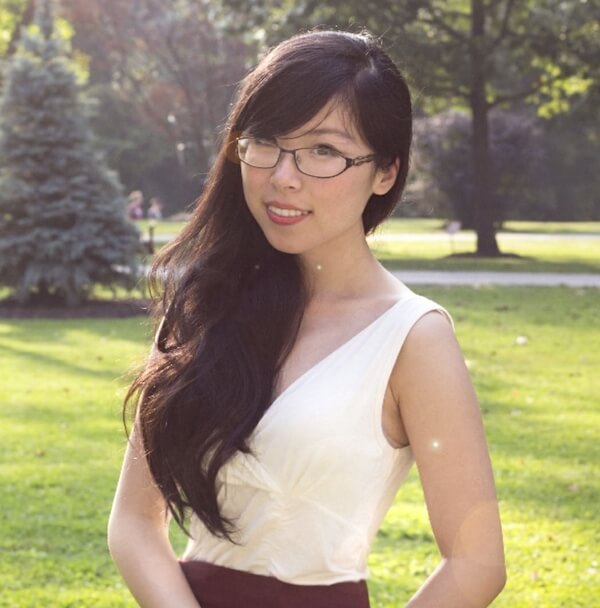The following interview has been lightly edited for length and clarity.
Meet the Interviewee: Angela Dong

Angela Dong is a third-year Health Sciences student at McMaster University. As you may know, Health Sciences is a particularly prestigious and difficult program to get accepted to. With an acceptance rate of around 10%, McMaster Health Science rivals the acceptance rates of some Ivy League institutions. I got the opportunity to unearth Angela’s insights about the program and its unique supplementary application.
What sparked your interest in the program?
“To be honest, I didn’t realize McMaster Health Sciences was actually that big of a deal until after I got in. I was always more of the business-track student and applied to most of the business schools in Ontario in hopes of doing a double degree in science-business or biotech. However, after a really engaging inquiry-like class activity we had one day in AP Bio, I realized that I loved biology and learning through interactive ways such as that, and had always done best with self-directed, Socratic learning environments.
I had heard that McMaster really valued this inquiry-style teaching method and that Health Sciences, in particular, focused on it, so I gave it a go and applied. It didn’t hurt that I liked biology more than any other science and that family circumstances had forced me to realize the unique importance health has on our lives.”
What was your grade average upon applying to the program?
“By the percent system of high school, I had a 95.0% average applying, pretty much the median of my year of matriculants.”
What did the supplementary application entail?
“The only supplementary component was 2 short essay prompts (that change every year). In my year, I had the prompt of “Write anything you like” with a limit of 2000 characters – I wrote about my experiences growing through Model United Nations and how that led me to want to do health sciences for that. The second prompt was a zoning map of a city with a graph and a case study about the correlation between school grades in standardized exams and the location from which each school’s students came from. We were to come up with a reasonable explanation for why the data looked the way it was. I wrote about the correlation between family household income and school quality in the area, but other people came up with a plethora of different creative explanations.”
Honestly, why do you think the program selected you? What do you think set you apart from other students who applied?
“I think my essay on Model United Nations probably distinguished me from most other pre-meds who might be focused more on science. I was always more of the politics, law and debate kinds of a student (I was exec and provincial/national level competitor of Debate, DECA, Model United Nations as well as EIC of my school newspaper in high school). Although that made me feel like a fish out of water in my first year of undergrad, surrounded by more science-oriented students. It did give me an advantage when it came to Inquiry class which was all about thinking critically and creatively and being able to communicate ideas and opinions eloquently. I realized that the strong humanities background I had and the analytical skills fostered through debate actually translated extremely well to research because research is all about asking questions, defending/attacking claims, and digging to the truth of the matter. Furthermore, it’s helped me as I’m studying for the CARS section of the MCAT and debating bioethics case studies for my bioethics class.”
If you could go back in time, knowing what you know now, what would you tell your former self upon preparing for the application?
“I would probably tell myself to lay off of the excessive extracurriculars in high school because McMaster didn’t ask for how many extracurricular activities one does – it mostly just measures for what you learn from your experiences, no matter how limited it may be. I was the kid who did 10 different clubs and was exec of 8 throughout high school, and that took a lot of time away from school, most likely impacting my GPA to some extent. Although that didn’t hurt me as I still got in, I could have focused my energy better on a smaller handful of extracurriculars and did more clinical volunteering and research in high school, which would have given me a leg-up in research opportunities here in university. As for the application aspect, I would probably say to reflect more intensively on experiences – there’s no such thing as a small experience or moment, it’s all what you make of it. That more reflective introspection on what I’ve learned would have helped me craft an even more thoughtful essay.”
Based on your experience in the program, would you recommend Grade 12 students to apply? If so, what advice would you give them upon applying?
“Yes, I would definitely recommend Grade 12s to apply. I think that in this fast-changing world today, fluid intelligence skills like critical thinking, easily transferrable skills like professional competencies and communication, and systems-thinking analysis borne from learning cases in pharmacodynamics and anatomy are essential for our generation.
I would advise students though to not put too much pressure on themselves throughout high school to get in – this isn’t the be-all-end-all, and the human journey is long and unpredictable. Just focus on the high school experience, learn as many lessons (life and curricular-wise) as you can, keep an open mind, connect with people you usually don’t connect with and be empathetic. Everyone has a story – and as especially as today’s premed, people’s stories are just as important as their diseases, if not more so. Learning doesn’t happen only in a university or some educational institution – learning happens every day just with life. Don’t miss the roses imparting valuable lessons just because you’re busy trudging through the path of tests and quizzes.”

